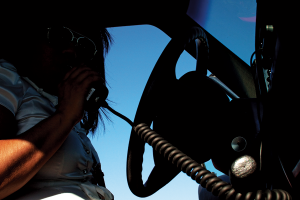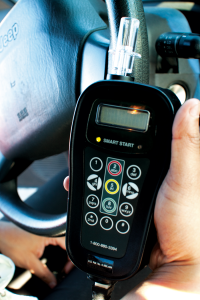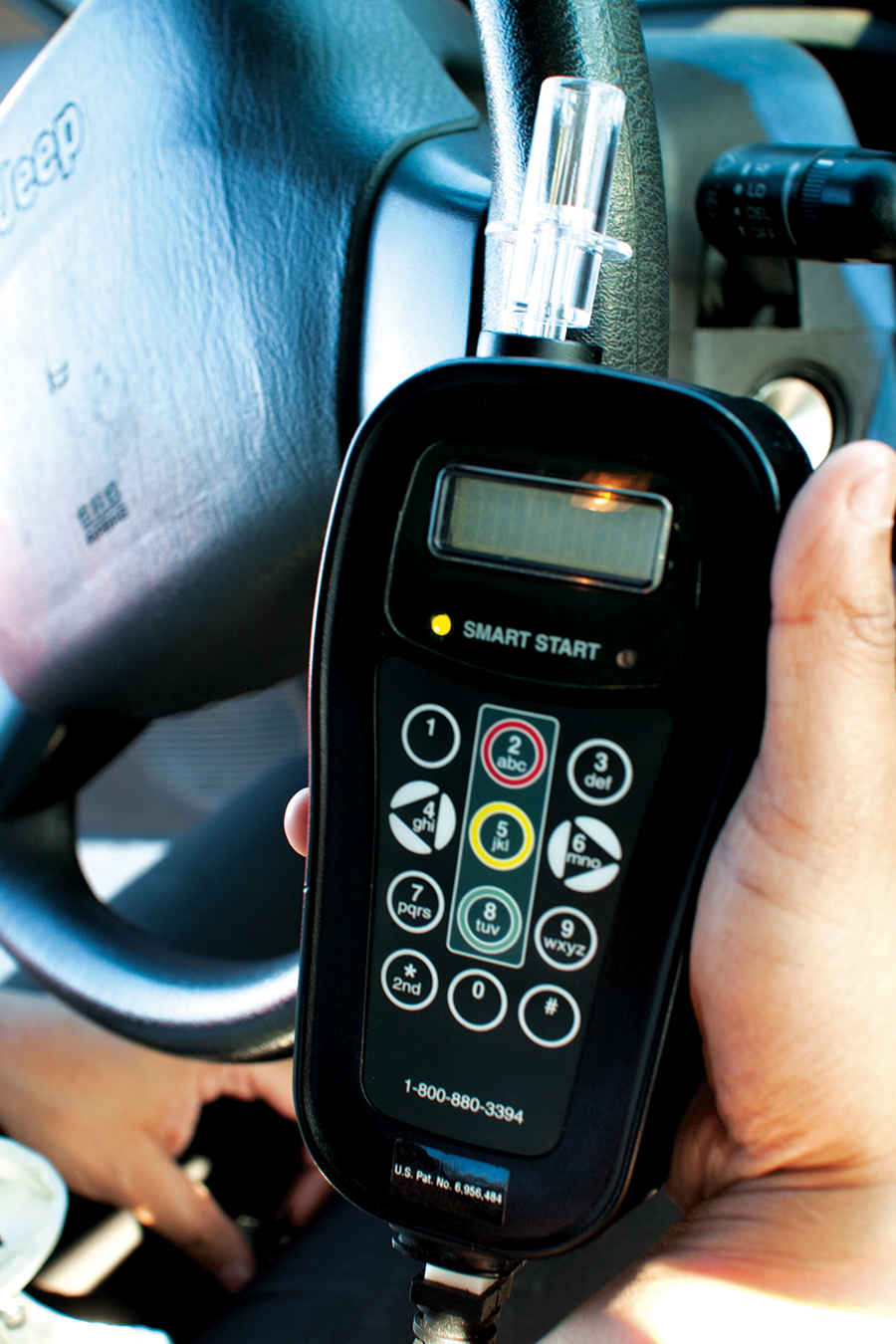By Amy Estrada/reporter

Photos Casey Holder/The Collegian
Red and blue lights from four different North Richland Hills police cars flashed on the side of Airport Freeway June 12, 2010, a night one NE student named Maria will never forget.
“I saw flashing lights behind me, and I kept thinking I can get away with this,” she said.
Maria, who didn’t want her last name used because she does not want people judging her, said earlier that day after work she received a text to hang out with the girls and have a few drinks.
She met up with two of her best friends, Ryan Elam and NE student Jessica Chavez. They enjoyed dinner and a margarita followed by two or three beers and decided to go to the local bar after they were all done.
“When we got to the bar, I had four beers in a span of 30 minutes,” Maria said.
At this point, Elam said she knew Maria had reached her limit. The girls decided to go over to a third bar. Before leaving, Chavez said she asked Maria if she needed a ride.
“Maria turned down the ride,” Elam said.
“I thought I was fine to drive,” Maria said.
Maria said she had never been caught drinking and driving, so she felt it was OK for to drive herself that night.
“I felt invincible,” she said.
Maria followed behind Chavez in her vehicle. Chavez said she and Elam kept looking back to make sure she was still behind them. They noticed that Maria was slowly starting to fall more and more behind them.
They weren’t speeding, and it was starting to worry Chavez that Maria was so far behind.
Maria said it was because she was texting while she drove.

Photos Casey Holder/The Collegian
“Stupid, I know,” she said.
Chavez and Elam were two exits away from the bar when they noticed that Maria was no longer behind them.
“I knew she had gotten pulled over, and I felt guilty,” Chavez said.
Maria said she saw the flashing lights behind her and pulled over to the median.
“It’s very surreal when you see one of your friends getting pulled over behind you, knowing she was over her limit,” Elam said.
The officer asked Maria for her license and registration and if she knew why he had pulled her over.
Trying to stay calm, she said she was speeding. He asked if she had been drinking. She said she had a margarita with some friends at dinner.
The next thing she knew, she was out of her car, and four patrol cars sat behind her in the median.
The officer asked her to perform a sobriety test.
“I did three different tests,” she said. “I walked the line, followed the pen with my eyes and held my hands out to my side and lifted one leg in the air and held it for a few seconds.”
After the tests, the officer walked back to his car, and Maria started to cry. She knew she was going to jail.
She had made a mistake, and she kept thinking she needed to take it like a big girl, she said.
“They put me in handcuffs. It’s the worst feeling in the world,” she said.
Elam kept texting Maria to find out if she was OK. The one and only text Elam received back from Maria said, “I’m going to jail.”
That scared Chavez, who stopped drinking when they reached the last bar of the night.
“I got sober real quick,” Chavez said.
Maria was taken to the North Richland Hills Police Department. The officers questioned her for a bit and then stepped away. When they came back, they handed her an orange jumpsuit and told her to change.
She had her fingerprints taken, a mugshot was taken and she was asked to blow into a Breathalyzer.
“My blood alcohol content level was at .15. It was almost double of what is considered to be over the limit,” she said.
She was offered a phone call but refused because she knew she wasn’t going home that night.
“What was I going to say? ‘Hey, Mom, I’m in jail. Come get me,’” she said.
An officer woke her up at 7 a.m. Then she made the dreaded phone call to her parents.
Her mother said she was disappointed and at first said she did not have money for bail.
“I didn’t know if I was going to have to sit it out the rest of the weekend,” Maria said.
While she waited behind bars, one of the officers brought her lunch and said her bail was being arranged. Maria said she will never eat Cheetos or pizza bagels again. It reminds her too much of her lunch in jail.
By noon, her mom had made bail, and she left for home, but it was just the beginning of a long process.
After talking to several lawyers and finally picking one, she and her mother went to court in mid-August to find out her fate.
She received 18 months probation, a $500 fine and 24 hours of community service. Also, a Breathalyzer was installed in her car because of her BAC level, and her driver’s license was suspended for three months.
At home, she lost freedom as well. Her sister had to drive her to and from school and work. She had to ask permission from her parents to leave the house, and if she left the house, someone had to pick her up.
Now that Maria has regained her driving privileges, she still has to deal with the Breathalyzer in her car.
A camera on the driver’s side of her windshield takes a picture every time she blows into her Breathalyzer to confirm it is her and no one else. Only after she gets a pass on the screen of the Breathalyzer can she start her car.
“I have to blow into it again five minutes later, and then I have to blow into it every 15 minutes after that so I’m not violating my probation,” she said.
She said she gets scared because she thinks she won’t be able to reach her full potential of who she is because she got arrested. Her chances of getting a good job have dropped tremendously because she has a Class B misdemeanor on her record, she said.
“My whole life is ruined because I decided to drink and drive one night,” she said. “I don’t like talking about it unless I have to. I don’t want people to judge me and think I’m a bad person because I’m not.”
Maria said a couple of beers were not worth going to jail over. She hopes no one has to endure what she is going through right now.
Elam said the three of them are more cautious now. They determine who will be the designated driver before they go out.
“It becomes more of a reality when you see one of your friends going through everything,” Elam said.
Chavez said she went out the other night and felt proud that she was the designated driver for the night. She said she felt responsible that her friends got home safely.
“I don’t think I’m invincible anymore,” Maria said.

